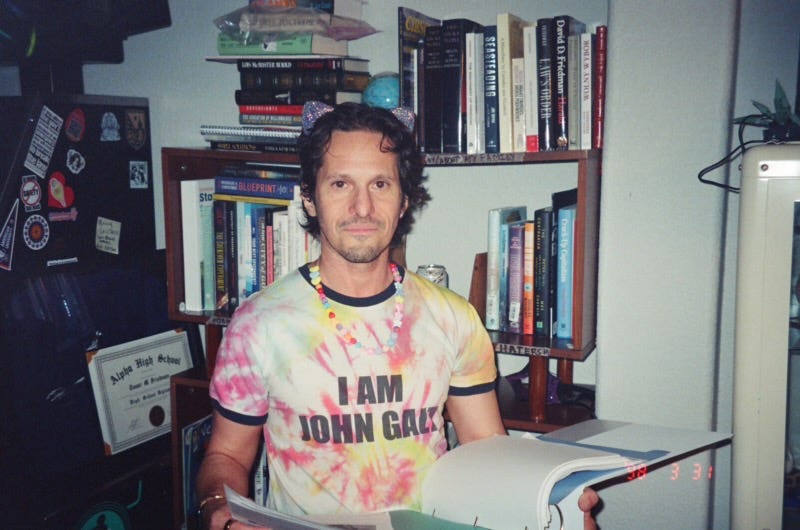Today, in The Point, I published a feature I’ve been working on since March about a week I spent in Austin learning about “Freedom Cities”—Trump’s plan to build charter cities on American soil, probably in the Southwest.
When I started writing the piece, there had basically been zero coverage of the topic; in part, because attention to freedom cities was washed out by the media’s focus on Trump’s other absurd proposals—from twenty percent tariffs to the occupation of Greenland.
But since then, there’s been a few notable pieces: a reporter from Wired wrote about the same conferences I attended, and Naomi Klein stood on a soap box for the Guardian with Astra Taylor and wrote a polemic about freedom cities called “The rise of end time fascism.” You can probably guess what they think.
My piece is less ideological than the others; more of an in-depth description of the respective plans circulating, and a vibe check for some of the people involved—from Próspera’s chief of staff, Trey Goff (spoiler: Próspera is one of the main groups trying to build freedom cities) to Nick Allen, the founder of Sovereign House (yes, Allen is one of the main characters working on freedom cities, too).
But the star of the show is Patri Friedman, grandson of the economist Milton Friedman, who’s one of the main investors in network states and charter cities, with a fund backed by Peter Thiel. First, we see Patri on stage in a golden velour sweatsuit talking about the decline of the nation-state. By the end of the piece we’re at his house for a SXSW party, and he’s dressed in cat-ears with a tie-dye t-shirt that says, “I am John Galt,” referencing the main character in Ayn Rand’s Atlas Shrugged.
The real thrust of the piece, though, is the tension between the impetus to ‘build the future’—and how exciting that should be in theory—and the reality of what it feels like in practice: the widespread fear, skepticism, frustration, and anger directed at tech people, who are using their power to shape America in their image, whatever the consequences.
As an example of the tension, after a conversation with an aerospace engineer who tells me about Elon Musk’s plan to disrupt air travel with consumer rockets, I make the following observation:
His argument made me think of an essay written by the anarcho-leftist anthropologist David Graeber in 2012, called “Of Flying Cars and the Declining Rate of Profit.” Graeber argued that part of the reason our society has become so skeptical about technology is that, fifty years after the moon landing, when every American teenager was promised a future of jet packs and flying cars and space colonies, many of us feel a sense of disappointment that all we got were smartphones and information tech. The future never arrived as it was promised, and so the techlash served as an outlet for this anger. But a decade after Graeber wrote those words, something had shifted. Elon Musk was catching rockets like baseballs out of the sky. The president was promising flying cars again. Artificial intelligence was in everyone’s pockets. New cities are coming for the West and, some say, the moon. And yet: nobody but a small group of technologists appears to be pleased with these developments. The welcome party is nowhere to be found. The future is arriving again, out of the reckless political engineering of the new regime. And the dominant response seems to be one of anxiousness and fear.
I think the piece does a good job of telling a story—building amusing characters, dropping funny quotes—and bringing you inside the logic of the network state world at a critical turning point: when charter cities are suddenly becoming a branch of federal industrial policy.
Even if it seems like a LARP from the outside, the stakes of urban planning decisions being made right now in D.C. are extremely high. Legislation is likely to be passed within the year.
This won’t be the last you hear about freedom cities or network states. But it could be the first?







We are overdue to be building entirely new cities.
Chicago was built from scratch in a few decades. That was typical in the 19th Century.
The 21st century can and should be an era of new urban life using new technology.
Great to see this and eager to hear more.
New cities are called exoburbs . They are vacant conformist refuges from people who can’t handle cities 😎